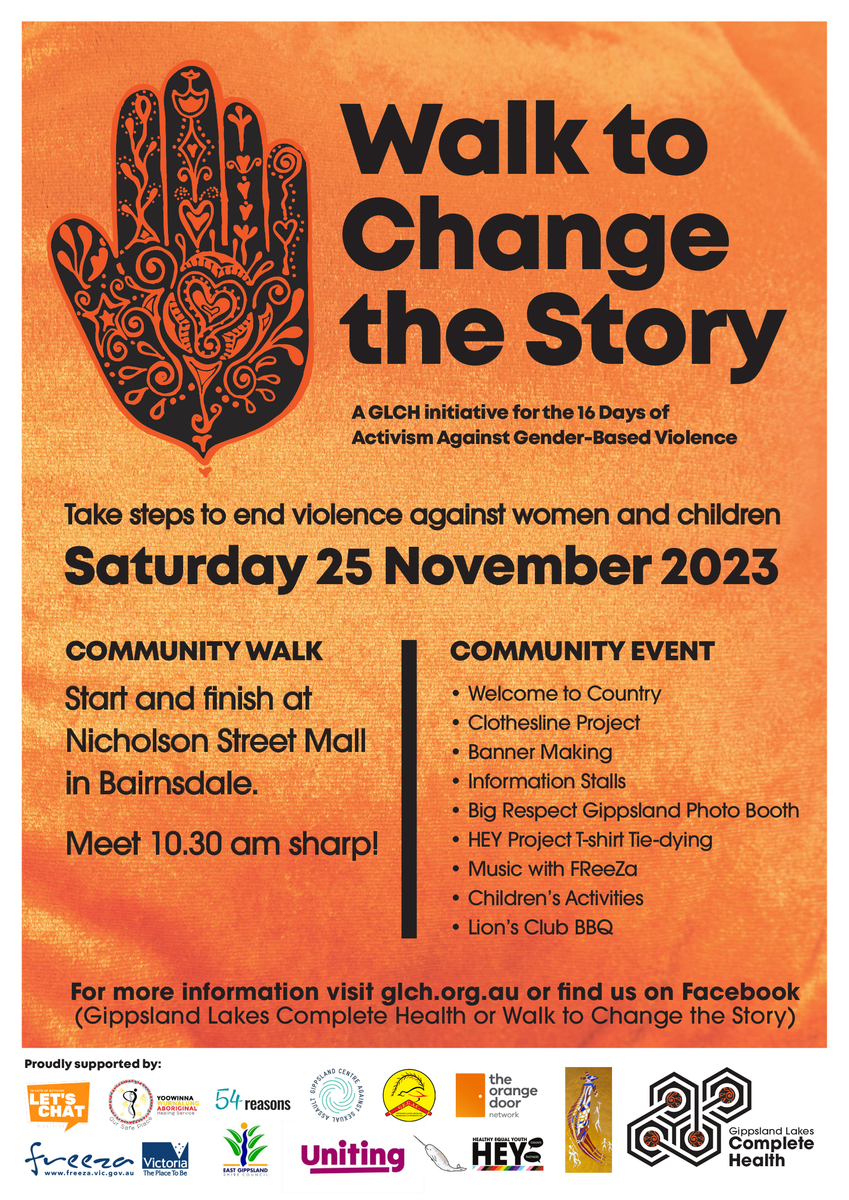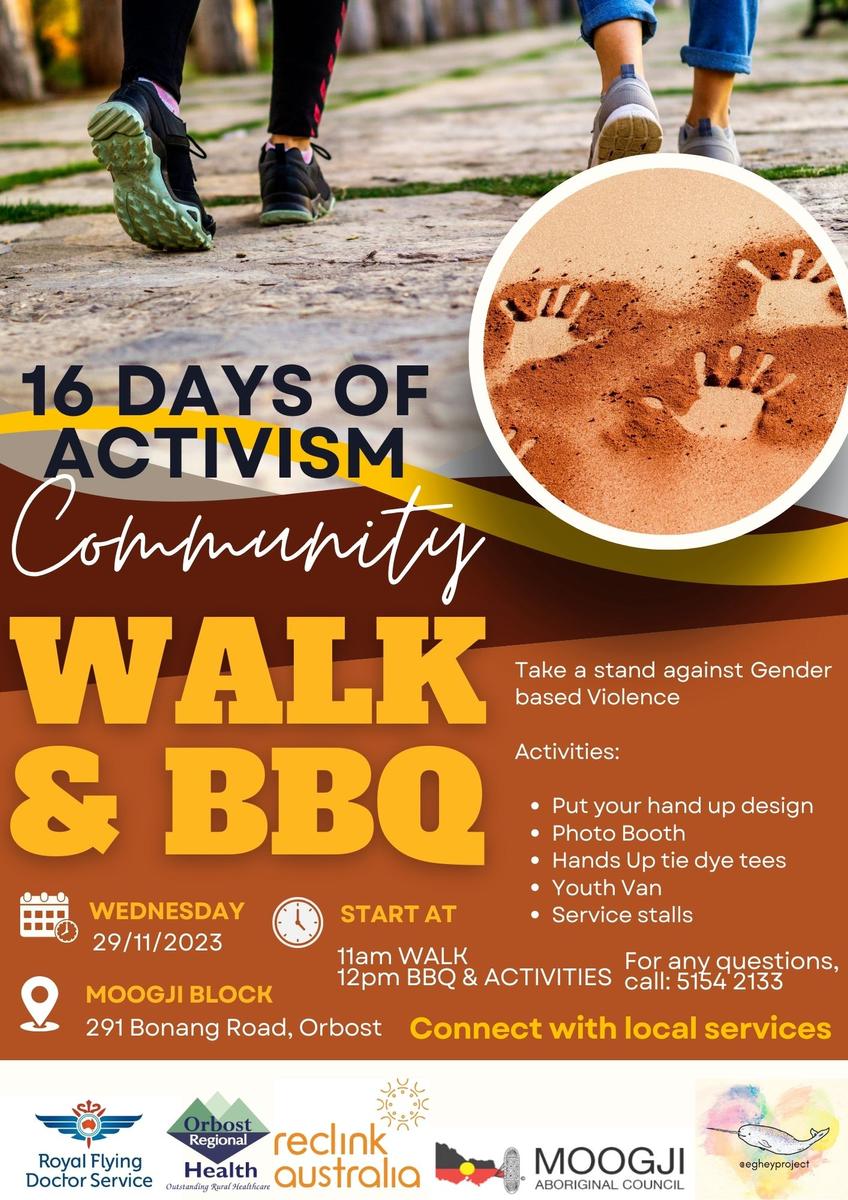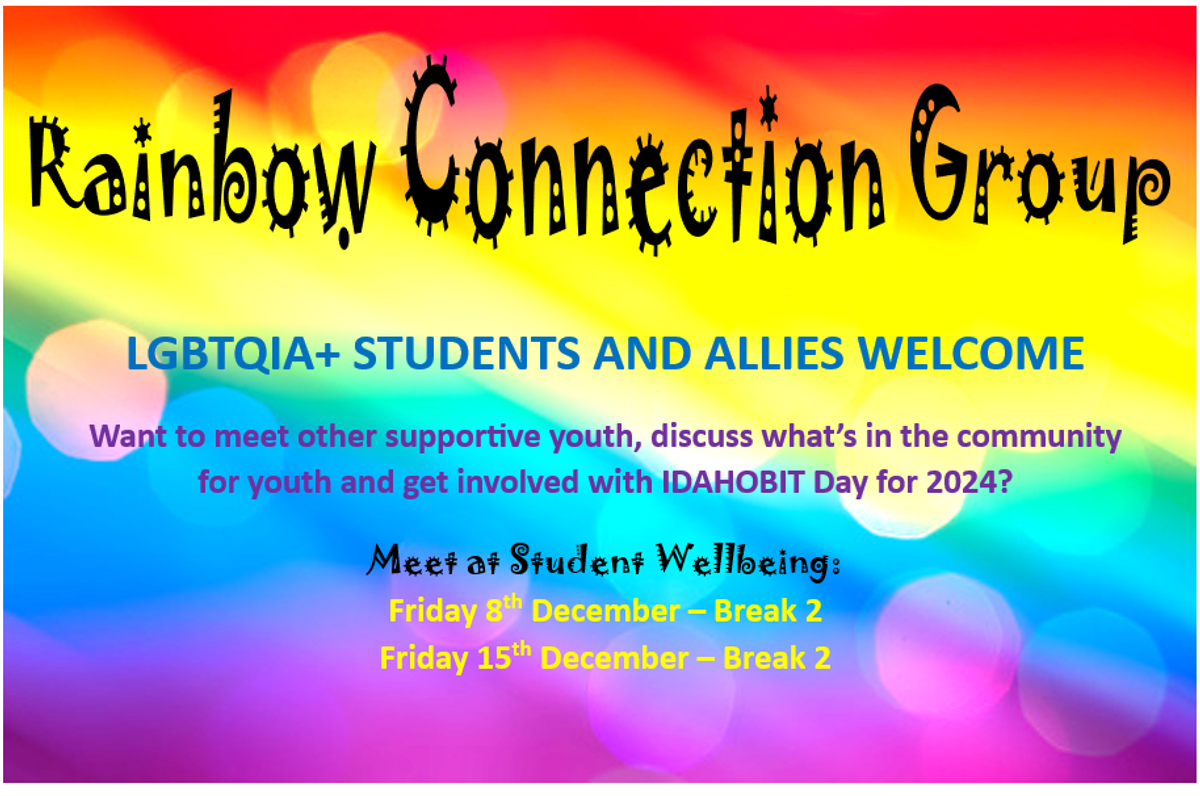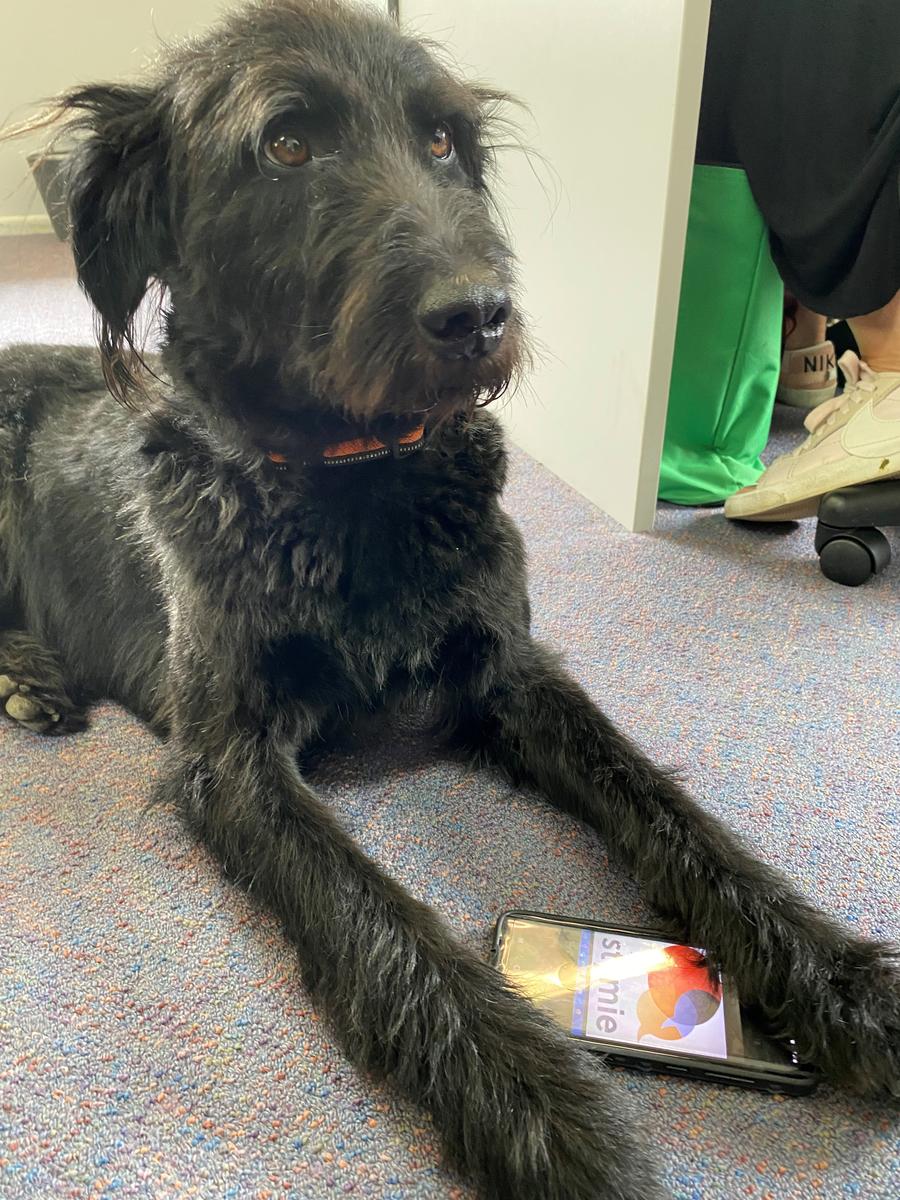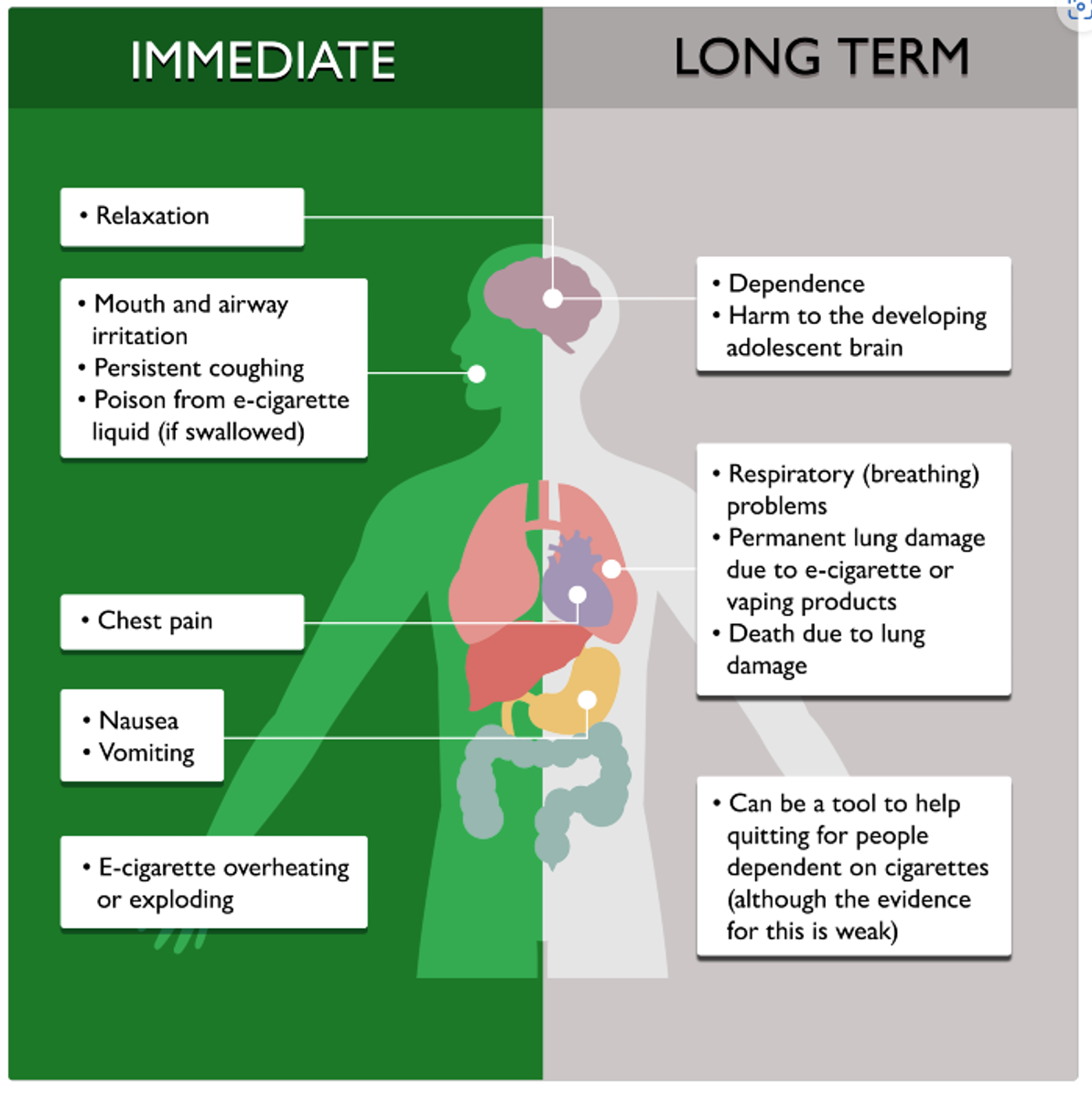Wellbeing
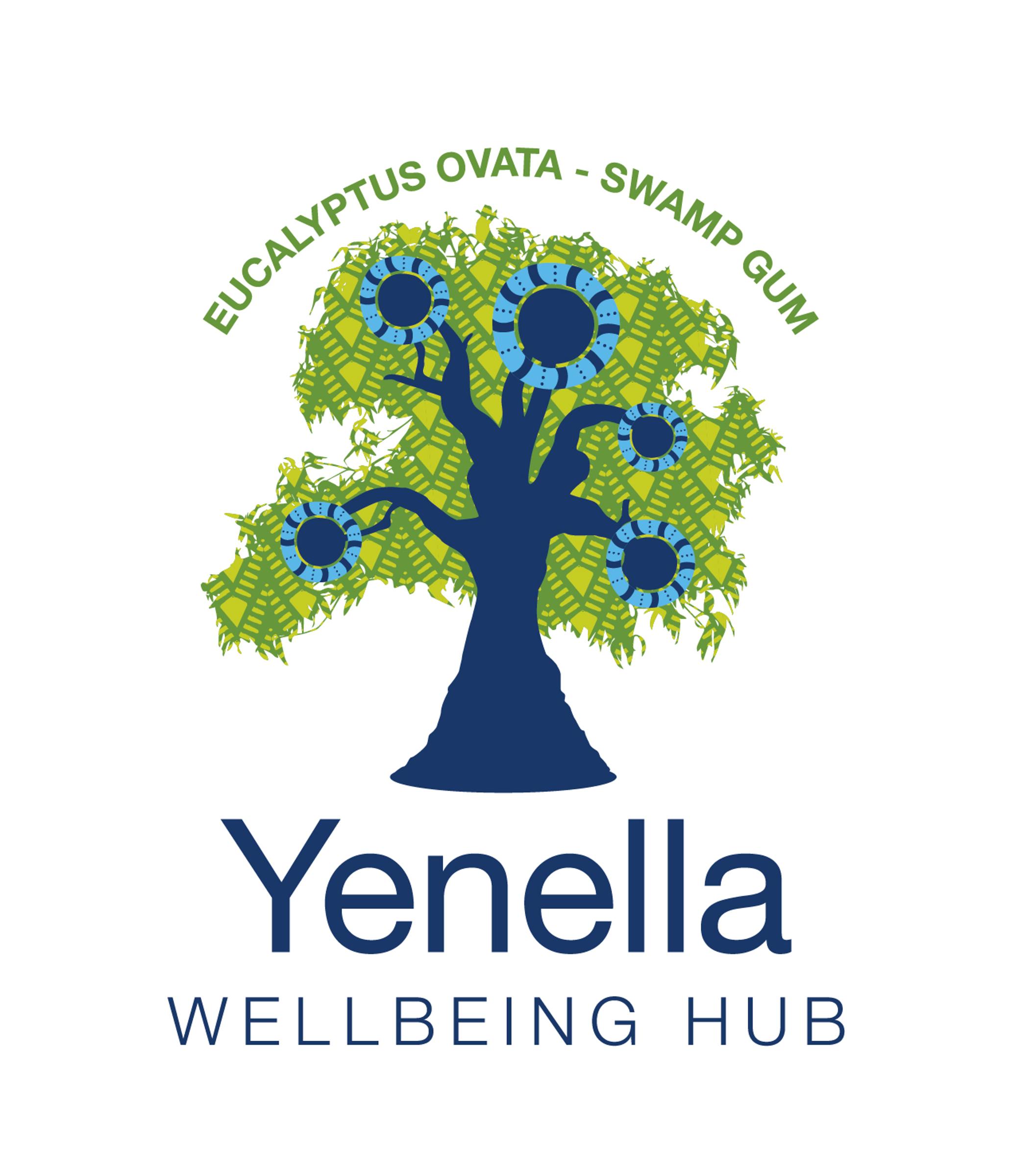
16 Days of Activism
An annual event started by the Women’s Global Leadership Institute in 1991, this global initiative runs from the 25th of November (International Day for the Elimination of Violence against Women) to the 10th of December (Human Rights Day). The 16 Days of Activism is designed to unite individuals and organisations around the world to raise awareness and take action by challenging the attitudes that perpetuate and normalise gender-based violence. Gender-based violence (GBV) is defined as “harmful acts directed at an individual or a group of people based on their gender”. It is rooted in gender inequality, the abuse of power and harmful norms and stereotypes. Gender-based violence affects women and girls and disproportionately affects women with disabilities, young women, First Nations women, women from refugee and migrant backgrounds and people from LGBTQI communities. The Let’s Chat Gippsland campaign focuses on the things we can all do to end violence against women and girls.
Why is this important?
As Gippslanders, we all want to feel safe and valued for what we contribute to society. We want our homes, schools, workplaces, sports clubs, pubs and churches to be places where everyone feels safe. Our community is not safe for everyone. Gender-based violence is widespread and is likely to be affecting someone you know. Gender-based violence exists in every community across Gippsland, with much of it going unreported or unseen.
- In Australia, 1 in 6 women since the age of 15 have experienced physical and or/sexual violence from a partner they were living with*.
- Around 95% of all victims of violence (both male and female) reported experiencing acts of violence – physical or sexual assault, or threats – from a male perpetrator**
Gippsland has high levels of violence against women and girls due to a range of intersecting cultural and social factors, that include gender inequality. Research has shown that one of the main drivers of violence against women is gender inequality.
You can learn more here, or take a look at the video Change the Story.
*Source: Family, domestic and sexual violence in Australia, 2018, Summary – Australian Institute of Health and Welfare (aihw.gov.au).
** Source: (ABS, 2013) 4906.0 – Personal Safety, Australia, 2012 (abs.gov.au)
What do we hope to achieve?
We want to make sure that everyone in Gippsland understands what the 16 Days of Activism is about and how they can get involved.
We know that conversations can have the potential to influence attitudes, beliefs and behaviours.
Let’s Chat Gippsland has been designed to invite the community to be involved in conversations where they are able to learn more, challenging their existing beliefs and ask questions to better their understanding. The theme for Let’s Chat Gippsland is conversations to create change. The campaign will support people to discover evidence-based actions they can take to help prevent violence against women and girls. These actions are:
- Challenge the condoning (excusing or tolerating) of violence against women.
- Promote women’s independence and decision making
- Challenge gender stereotypes and roles
- Strengthen positive, equal and respectful relationships
- Normalise gender equality in public and private life
STYMIE REMINDER
Sometimes it can be difficult for young people to speak with an adult about something they’re dealing with or worried about. With Stymie, students can make notifications both safely and anonymously, about depression, anxiety, suicide ideation, cyberbullying, bullying, illegal activity, self-harm, potential fights, or anything else they’re concerned about. See the Stymie page of this newsletter for more information on how to report.
Did you know that ANYONE can report on Stymie .. even Elvis!!
VAPING AND YOUNG PEOPLE
The increasing popularity of inhaling e-cigarettes, known as vaping, has led to questions and concerns around the health impacts – especially for young people. Both nicotine-based products and nicotine-free products can be vaped, and while the extent of the harm is not yet clear, evidence suggests that vaping is not risk-free. E-cigarettes (vapes) are battery-operated devices that hold and heat e-liquids that emit vapours that users inhale. Using an e-cigarette is called vaping. E-cigarettes can look like traditional cigarettes, cigars or everyday items such as USBs or pens. E-liquid can contain nicotine which is the same drug present in regular cigarettes and other tobacco products. This means that vaping can also become addictive. E-cigarette products bought in Australia are not legally allowed to contain nicotine. But if purchased somewhere else (e.g. online or overseas) they may contain nicotine because labelling may not be regulated like in Australia. Additionally, even when labelled as ‘flavoured’, e-liquids can still contain nicotine because labelling is not always correct on e-cigarette products. E-liquids often contain chemicals like propylene glycol, glycerol, and ethylene glycol, some of which are known to cause cancer.
According to the 2017 Australian Secondary School’s Student Survey, 1 in 8 students (13%) had used an e-cigarette at least once in their lifetime. Among students who had tried vaping, almost half (48%) had never smoked a regular cigarette.
The possible immediate and long-term effects of e-cigarettes are listed in the table below.
OTHER RESOURCES:
Vaping and young people - Alcohol and Drug Foundation (adf.org.au)
Quit Victoria | E-cigarettes and teens: what you need to know
E-cigarettes and vaping - Better Health Channel
Vaping and Young People-Youth (age 12-17) - Lung Foundation Australia
Kids Health Information : E-cigarettes and teens (rch.org.au)

